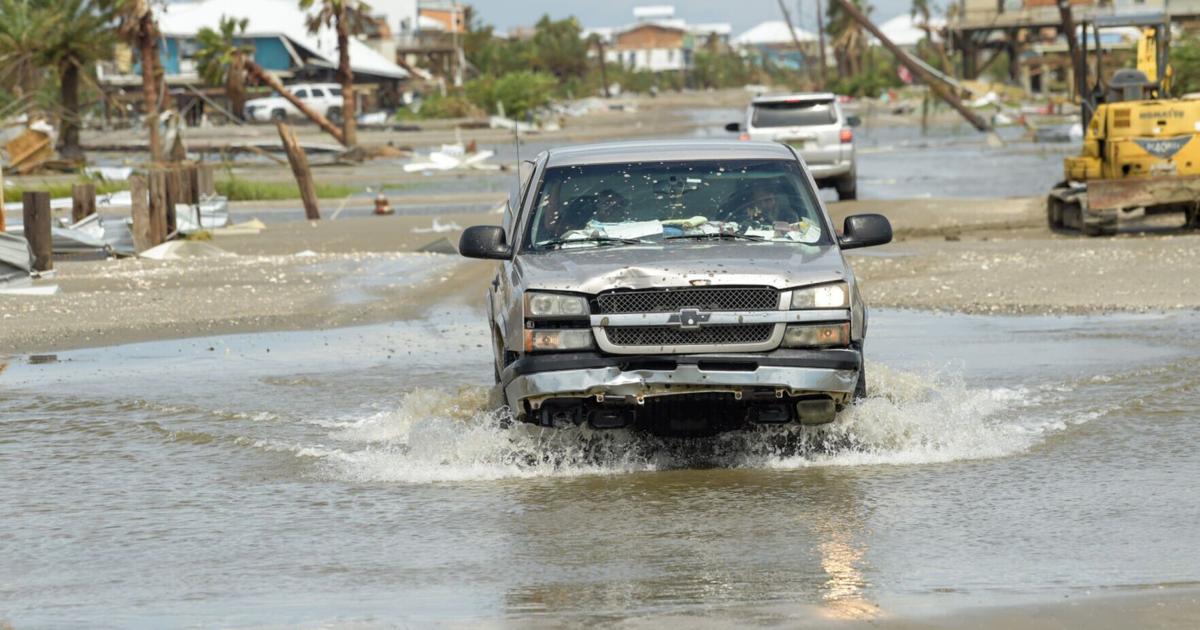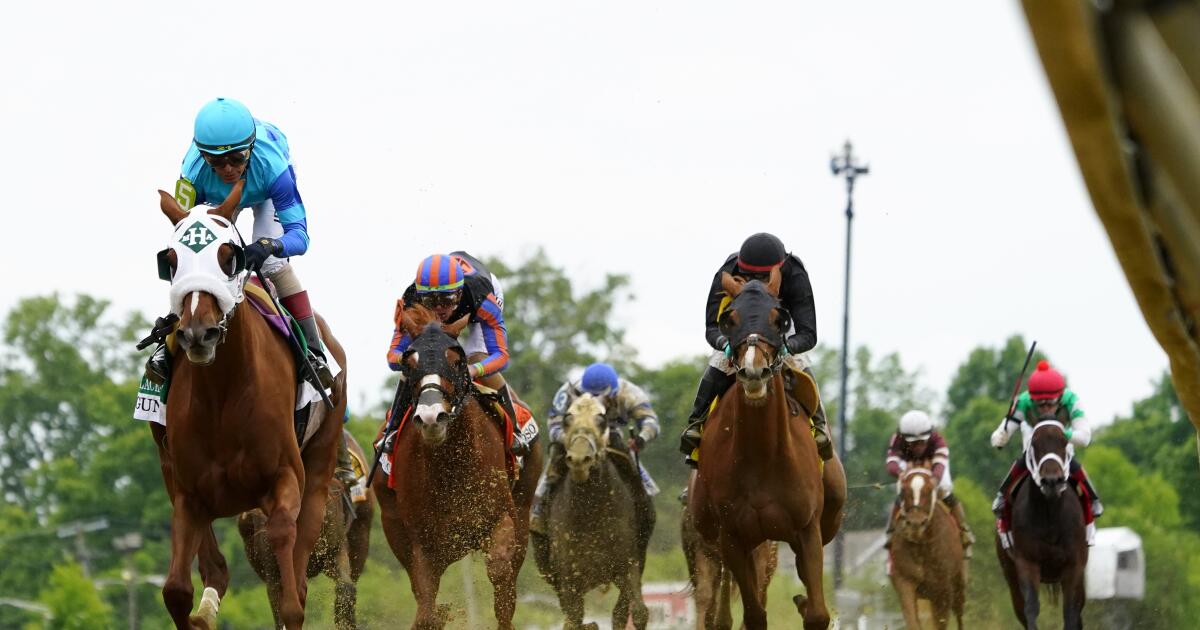Louisiana
Another hurricane season arrives. Will Louisiana again be spared?

Another hurricane season arrives on Thursday, and forecasts are being rolled out with insightful analysis of weather patterns in the months ahead. But here’s the bottom line for Louisianans who’ve seen too much destruction: Nobody really knows anything.
At least nothing definitive. There are certainly indicators that provide a reasonable basis for seasonal forecasts, ranging from El Nino to warmer-than-usual sea surface temperatures, pointing to an average or slightly below average number of storms. Technological improvements are also allowing for better warning systems when hurricanes do form.
But no matter the forecasts, Louisiana’s coast is always at risk of being hit by a strong hurricane. And as everyone from the nation’s foremost weather experts to your neighbor down the street will tell you, it only takes one.
That’s why Louisiana officials are working to get the word out now that preparations are in order. Plot out an evacuation route that takes you north and don’t expect to rely on contraflow. Review your insurance coverage. Know how you’re going to care for elderly or sick relatives.
New Orleans’ new $14.6 billion levee and floodwall system is a vast improvement over pre-Katrina defenses, but it will not protect against all storms. The Army Corps of Engineers has in the meantime been investigating pump corrosion in a key part of that system, but it has made contingency plans and says it will have more than enough capacity in place to pump out rainfall.
This season, which runs through Nov. 30, is also arriving as families continue to recover from the brutal years of 2020 and 2021 – a span that saw two of the most powerful storms to ever make landfall in the state in Hurricanes Laura and Ida, both Category 4 monsters with 150 mph winds. Laura ripped through southwest Louisiana in 2020 and Ida leveled parts of the southeast in 2021.
Hurricanes Delta, a Category 2, and Zeta, a Category 1, also hit during that timeframe. Last year was mercifully quiet for Louisiana, but residents need only to look east to where many spend their summer vacations for reminders. Hurricane Ian plowed into southwestern Florida as a Category 4, left behind around $112 billion in damage and killed more than 150 people, directly or indirectly.
Ian was the third-costliest U.S. storm on record, trailing Hurricane Harvey at No. 2 and Katrina as the costliest ever at $193 billion, adjusted for inflation. Ida is sixth at $81 billion.
“There’s a tremendous amount of recovery ongoing, and communities may be more vulnerable or have challenges relative to that recovery that puts them in a posture to make it even more important that we do our very best to be prepared,” said Casey Tingle, director of the Governor’s Office of Homeland Security and Emergency Preparedness.
“And certainly we know that that’s true for families across the state that may still be struggling with insurance or other things on the recovery side and having to deal with a blue roof perhaps, or living in a travel trailer or mobile home.”
A humorous sign on the marquee of the Lake Pontchartrain Causeway in anticipation of Hurricane Ida in Metairie, Friday, Aug. 27, 2021. (Staff photo by David Grunfeld, NOLA.com | The Times-Picayune | The New Orleans Advocate)
A rare and average year?
Forecasts this year have taken into account some important changes in weather patterns. For the past few years, a La Nina pattern has been in place, and that has contributed to extremely active storm seasons. La Nina has now ended and El Nino is expected to be in place this year.
Their effects on hurricane season have mainly to do with wind shear. La Nina leads to less wind shear in the Atlantic, which is favorable to hurricane formation.
El Nino does the opposite. It leads to more wind shear in the Atlantic, and that essentially chops across storms and can prevent hurricanes from forming. Still, there are no guarantees, and strong hurricanes do form in El Nino years.
Take Hurricane Betsy in 1965, which many New Orleanians will remember – or at least have heard stories about. That storm occurred in an El Nino year.
Balancing out El Nino in forecasts this year are other factors, including warmer-than-normal sea surface temperatures in the Atlantic and Caribbean, which can help feed storms. As NOAA scientists explained last week, those warm temperatures are due partly to a long-term weather cycle known as the Atlantic multidecadal oscillation, which usually lasts between 20-40 years.
A warm pattern that began in 1995 is continuing, while temperatures in general are also gradually rising due to global warming.
The clash of factors has led to significant uncertainty in this year’s modeling, NOAA scientists say. With all that in mind, here are some of the main aspects of this year’s forecasts:
- NOAA forecasts a “near-normal” year, with 12-17 named storms, five to nine hurricanes and one to four major hurricanes of Category 3 and above.
- A closely watched forecast from Colorado State University predicts a slightly below-average year, with 13 named storms, six hurricanes and two major hurricanes.
- An average year includes 14 named storms, seven hurricanes and three major hurricanes, based on a 30-year history between 1991 and 2020.
- Because of recent highly active years, this year’s “near-normal” forecast would have been considered a more active season a decade ago.
“We’ve had anywhere from six named storms to 18 named storms during El Ninos,” said NOAA’s Matthew Rosencrans. “The stronger an El Nino event, usually the less amount of storms you have. But we are also in an active era, and having a strong El Nino with an active era and such warm (sea surface temperatures), I’ve only seen it one other time in the historical record. So there’s not a lot of analog evidence for it. So it’s definitely kind of a rare setup for this year.”
Don’t rely on contraflow
One piece of advice state officials are stressing has to do with contraflow – specifically, not to rely on it. Due in part to the increasingly rapid intensification of storms, contraflow is often not a viable option for Louisiana.
There is a checklist of factors that must be met before the state can employ contraflow, or shifting all lanes of highway traffic in the same direction, according to the state Department of Transportation and Development. Prerequisites include New Orleans and the metro parishes calling for a mandatory evacuation and a slow-moving Category 3 storm or higher in the Gulf.
The decision to use contraflow must be made 72 hours in advance, and preparation for it is extremely burdensome. Equipment to shut off hundreds of intersections and direct traffic must be set out and engineers must reprogram traffic lights. The state must also complete evacuations from pickup points and coordinate with other states.
Implementing contraflow outside of that checklist can cause more harm than good since it severely limits transportation options, state officials say. It has not been used since Hurricane Gustav in 2008.
“You can’t just run up to your local grocery store and buy contraflow off the shelf,” said DOTD spokesman Rodney Mallett.
The state is also urging people to leave early, drive north and look for alternative routes when they do evacuate since storms can shift to the east or west. As an example, Mallett said it took as much as 15 hours to reach Houston before Ida.
Around 1,900 families remain in state-provided trailers distributed since Ida, mostly in Terrebonne and Lafourche parishes, and they should always evacuate while not taking the trailers with them, GOHSEP spokesman Mike Steele says. The trailers are strapped down and connected to local electrical and sewage systems.
Staff Writer Mark Schleifstein contributed to this report.

Louisiana
Urban League of Louisiana’s kicks off Listen and Learn Tour in Cenla

ALEXANDRIA, La. (KALB) -The Urban League of Louisiana kicked off its Listen and Learn Tour in Alexandria on Friday, May 17, where they engaged with residents, community leaders, and elected officials from across the region. Established to advocate for fairness in society and the economy, particularly for African Americans, the organization seeks to support those in Louisiana facing economic challenges, striving for legislative changes and seeking to improve society.
During Friday’s meeting, locals voiced their perspectives on pressing issues in Central Louisiana. Urban League leaders emphasized the importance of transparency and open dialogue to address these concerns. Their objective is to foster consensus and collaboration so that they may enact meaningful change for the betterment of the community.
“Part of our commitment is ensuring that when you share an issue with us, you won’t be left waiting,” said Charles Phipps, Director of Policy at the Urban League. “Within a week of our visit, expect to hear back with a summary of what we’ve gathered from you. However, when it comes to policy changes, these processes take time as they navigate legislative cycles. We pledge to keep communication channels transparent, providing updates early and often so you’re informed of our progress. Today, we’re proud to announce that the outcomes we implement will be shared with the community.”
Urban League Officials said they’re committed to doing everything they can to advocate for the community.
Click here to report a typo. Please provide the title of the article in your email.
Copyright 2024 KALB. All rights reserved.
Louisiana
GLOBAL PAYMENTS INVESTIGATION INITIATED BY FORMER LOUISIANA ATTORNEY GENERAL: Kahn Swick & Foti, LLC Investigates the Officers and Directors of Global Payments, Inc. – GPN

NEW ORLEANS, May 17, 2024 /PRNewswire/ — Former Attorney General of Louisiana, Charles C. Foti, Jr., Esq., a partner at the law firm of Kahn Swick & Foti, LLC (“KSF”), announces that KSF has commenced an investigation into Global Payments, Inc. (NYSE: GPN).
Global Payments, Inc., is the parent company of Active Network LLC (“Active”), which operates online event registration and payment services for camps and athletic events, providing members with discounts on various consumer products and services, such as wine tastings, sports apparel, and travel.
In October 2022, following widespread complaints that Active’s system caused consumers to mistakenly enroll in a trial membership, which automatically converted to a paid subscription if not cancelled within 30 days charging customers annual fees, the Consumer Financial Protection Bureau (“CFPB”) sued Active, alleging that its continued operation of the program violated federal law.
Thereafter, the Company and certain of its executives were also sued in a securities class action lawsuit, charging them with failing to disclose material information during the Class Period, violating federal securities laws. Recently, the court presiding over that case denied the Company’s motion to dismiss in part, allowing the case to move forward.
KSF’s investigation is focusing on whether Global’s officers and/or directors breached their fiduciary duties to its shareholders or otherwise violated state or federal laws.
If you have information that would assist KSF in its investigation, or have been a long-term holder of Global shares and would like to discuss your legal rights, you may, without obligation or cost to you, call toll-free at 1-833-938-0905 or email KSF Managing Partner Lewis Kahn ([email protected]), or visit us at https://www.ksfcounsel.com/cases/nyse-gpn/ to learn more.
About Kahn Swick & Foti, LLC
KSF, whose partners include former Louisiana Attorney General Charles C. Foti, Jr., is one of the nation’s premier boutique securities litigation law firms. KSF serves a variety of clients – including public institutional investors, hedge funds, money managers and retail investors – in seeking recoveries for investment losses emanating from corporate fraud or malfeasance by publicly traded companies. KSF has offices in New York, Delaware, California, Louisiana and New Jersey.
To learn more about KSF, you may visit ksfcounsel.com.
Contact:
Kahn Swick & Foti, LLC
Lewis Kahn, Managing Partner
[email protected]
1-877-515-1850
1100 Poydras St., Suite 960
New Orleans, LA 70163
SOURCE Kahn Swick & Foti, LLC
Louisiana
Does a bill to protect IVF in Louisiana go far enough?

A bill wending its way through the Legislature aims to protect in-vitro fertilization treatments in Louisiana—and prevent the state from going down the same road as Alabama, where a court decision equating frozen embryos to children temporarily halted care.
But even supporters of the legislation worry that, in its current form, the bill does not go far enough and could leave providers who accidentally destroy an embryo vulnerable to criminal prosecution.
This week, state Rep. Paula Davis, R-Baton Rouge, who sponsored House Bill 833, asked the Senate’s Judiciary A Committee to amend the bill so that it would remove language from existing law that describes an in-vitro fertilized human ovum as a “biological human being.” (An earlier version of HB 833 had already tweaked that language, changing “fertilized human ovum” to “embryo.”)
After a debate over whether life begins at fertilization or when an embryo implants in a uterus, that amendment failed to pass.
Because some Louisiana criminal statutes reference “human beings,” Katie Bliss, an attorney specializing in IVF contracts who helped craft HB 833, worries doctors could be entangled in criminal cases.
“In some of the homicide statutes…instead of a person, they refer to a human being,” she said. “That gives pause.”
Dr. Nicole Ulrich, a New Orleans-based IVF specialist who worked on the bill, said the team behind it is still hoping to strip that language to allow “full protection” for providers.
If the language were removed from the law, embryos would still have “juridical person” rights, a special status given to corporations that allows entities to sue, Bliss told the Senate committee. She added that current statute grants them those rights, and that the language describing embryos as human beings represented an inconsistency in the law.
Legally, once an embryo is implanted in a woman’s uterus, it is considered a natural person, Bliss said, adding that an embryo represented “the potential for life.”
But Louisiana has one of the most conservative, anti-abortion state governments in the country, and Bliss’ explanation didn’t sit well with Republican senators on the Judiciary A Committee.
This “could be a difficult definition for those of us that hold different positions on what an embryo is,” said Sen. Rick Edmonds, R-Baton Rouge. “Many of us believe an embryo is life.”
Edmonds voted to reject the amendment, along with Sen. Beth Mizell, R-Franklinton, and Sen. Alan Seabaugh, R-Many. It failed along party lines, with Sen. Jay Luneau, D-Pineville, and Sen. Gary Carter, D-New Orleans, voting for it.
The bill then eked its way out of the committee, with Seabaugh and Edmonds attempting to stop it outright. Mizell cast the deciding “yes” vote.
If it passes, IVF providers would operate under updated legal standards. Initially, the bill granted them immunity so long as they were acting “in good faith.” But after Bliss’ research concluded that was not a reliable legal standard, the bill was amended so that IVF clinics would be subject to the typical medical malpractice laws and standards of care that govern other types of providers.
The debate over IVF in Louisiana comes as the Texas Supreme Court considers a case that could hamper IVF care in that state, as the Texas Tribune has reported.
-

 World1 week ago
World1 week agoPentagon chief confirms US pause on weapons shipment to Israel
-

 Politics1 week ago
Politics1 week agoRFK Jr said a worm ate part of his brain and died in his head
-

 Politics1 week ago
Politics1 week agoOhio AG defends letter warning 'woke' masked anti-Israel protesters they face prison time: 'We have a society'
-

 News1 week ago
News1 week agoNine Things We Learned From TikTok’s Lawsuit Against The US Government
-

 Politics1 week ago
Politics1 week agoBiden’s decision to pull Israel weapons shipment kept quiet until after Holocaust remembrance address: report
-

 Education1 week ago
Education1 week agoVideo: Police Use Pepper Spray on Protesters on G.W.U.’s Campus
-

 World1 week ago
World1 week agoA look at Chinese investment within Hungary
-

 News1 week ago
News1 week agoThe Major Supreme Court Cases of 2024






![Pietro Beccari: ‘There is no household in the world that doesn’t have [contact with] Louis Vuitton’](https://www.ft.com/__origami/service/image/v2/images/raw/https%3A%2F%2Fwww.ft.com%2F__origami%2Fservice%2Fimage%2Fv2%2Fimages%2Fraw%2Fhttps%253A%252F%252Fd1e00ek4ebabms.cloudfront.net%252Fproduction%252Fb68a5c6a-f6ef-40c7-8c6c-ce8d9b288cee.jpg%3Fsource%3Dnext-article%26fit%3Dscale-down%26quality%3Dhighest%26width%3D700%26dpr%3D1?source=next-opengraph&fit=scale-down&width=900)










